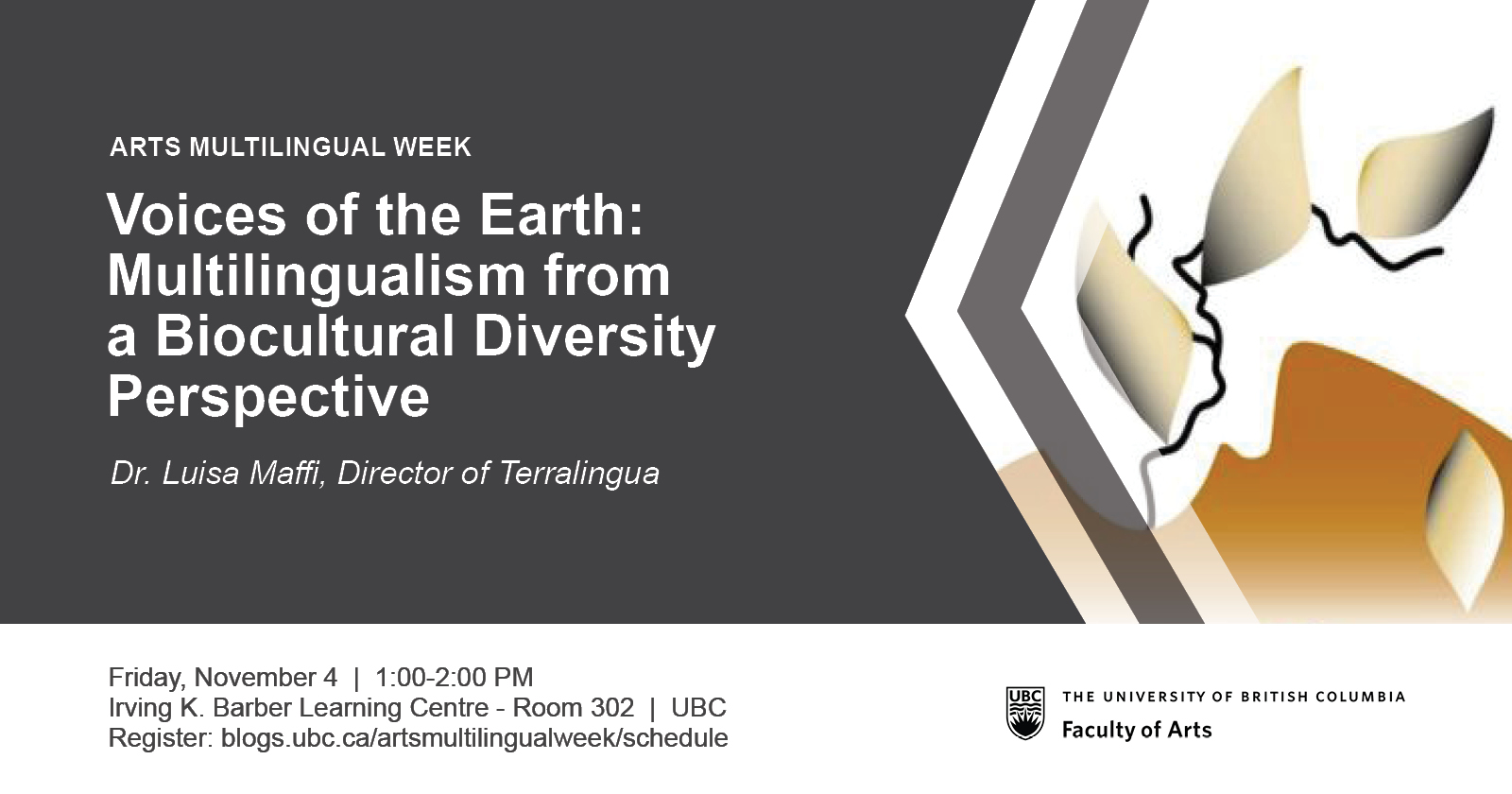

Talk by Dr. Luisa Maffi, Co-founder and Director of Terralingua
This presentation is part of Arts Multilingual Week.
About the talk:
When talking about multilingualism at a societal level, we usually tend to refer to the presence (and recognition) of a variety of both native and immigrant languages within a country. From that point of view, Canada certainly counts as a multilingual country, with at least 200 immigrant languages and over 70 Indigenous languages spoken (or signed) within its borders in addition to its two official languages. British Columbia is also strongly multilingual, both in terms of immigrant languages and by comprising about half of all the Indigenous languages of Canada.
But how often do we think of “multilingualism without borders”—that is, the total diversity of languages spoken in the world today? Globally, the earth speaks in over 7,100 different tongues. Only a few of those languages have very large numbers of speakers, with about 25 languages comprising a whole half of the world’s population. The remaining 7,000+ languages, the large majority of which are Indigenous, account for the other half, which implies that most of them have much smaller populations of speakers.
Celebrating multilingualism in its fullest sense means embracing all of the world’s linguistic diversity. It also means opening up to a broader understanding of linguistic diversity as a part of the biocultural diversity of life on earth: diversity in both nature and culture. In this talk, we will explore biocultural diversity as both an idea and a field of knowledge and action and consider its significance for achieving a just, equitable, and sustainable future for people and the planet.
Dr. Luisa Maffi (PhD Anthropology, University of California, Berkeley, 1994) has a background in linguistics, anthropology, and ethnobiology. She pioneered the concept and field of biocultural diversity—the interconnected and interdependent diversity of life in nature and culture—and is co-founder (1996) and director of Terralingua (terralingua.org), an international nonprofit devoted to sustaining biocultural diversity. Luisa spearheads Terralingua’s program of work, which spans research, policy, education, and outreach, and is editor of Terralingua’s flagship publication, Langscape Magazine (terralingua.org/langscape-home/). She has written extensively on the topic of biocultural diversity, including the foundational books On Biocultural Diversity: Linking Language, Knowledge, and the Environment (L. Maffi, ed., Smithsonian Institution Press, 2001) and Biocultural Diversity Conservation: A Global Sourcebook (L. Maffi and E. Woodley, Earthscan, 2010).
Luisa’s previous positions include a US National Science Foundation postdoctoral fellowship at the University of California, Berkeley (1994-1997), a US National Institutes for Health National Research Service Award fellowship at Northwestern University (1997-2000), a Research Associateship in the Anthropology Department at the Field Museum of Natural History in Chicago, Illinois (1998-2003), and a Research Associateship in the Anthropology Department at the Smithsonian Institution’s National Museum of Natural History in Washington, D.C. (1999-2004).
